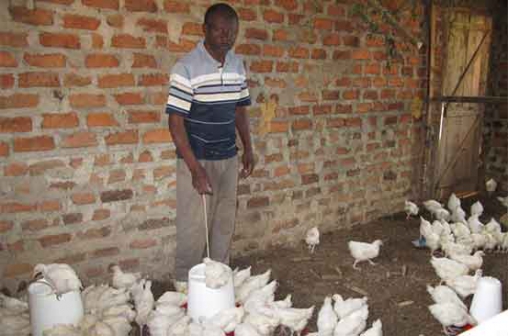×
The Standard e-Paper
Smart Minds Choose Us

Early in the morning, Dennis Osebe chops nappier grass into small pieces as his farmhand looks on, ready to chip in where necessary.
After cutting, he embarks on feeding his dairy cows and goats. Mr Osebe then heads to another section housing poultry and starts preparing feeds for his chicken, turkeys and geese.